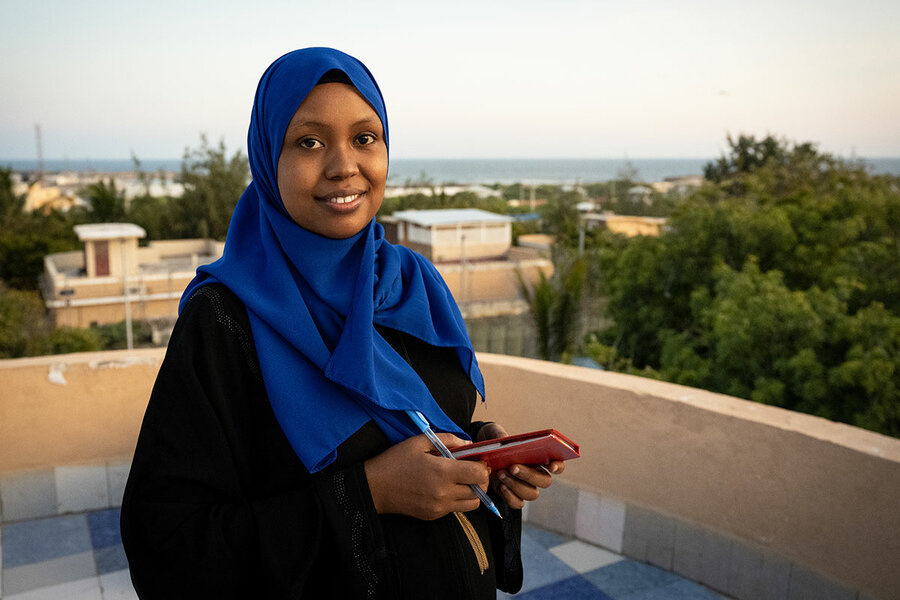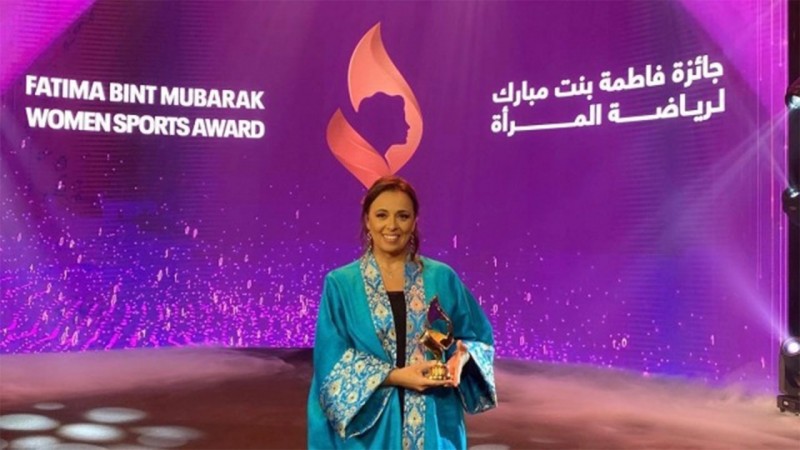The award comes after a pro-Israel nonprofit organisation criticised the nomination of the short film documenting the initial days of Israel’s war on Gaza.
Palestinian journalist Bisan Owda and Al Jazeera’s AJ+ have won an Emmy in the Outstanding Hard News Feature Story category for their documentary, It’s Bisan From Gaza – and I’m Still Alive.
Owda has been at the forefront of reporting from Gaza since Israel launched its assault on the territory last October, bringing the stories of Palestinians to a global audience amidst 11 months of war and devastation.
“This award is a testament to young Palestinian journalists and their professionalism. Bisan’s reporting has humanised the Palestinian story after decades of mainstream media’s systematic dehumanisation of Palestinians. Winning this Emmy is a win for humanity. We feel extremely proud of this bright moment amidst ongoing genocide, and Bisan will continue reporting,” Dima Khatib, Managing Director of AJ+ Channels, said on Thursday.
The award came a month after Creative Community for Peace, a pro-Israel nonprofit organisation, issued a letter criticising the nomination of the 25-year-old’s short film documenting the initial days of Israeli bombardment and its devastating impact on everyday people in the Gaza Strip.
The letter alleged Owda was affiliated with the Popular Front for the Liberation of Palestine (PFLP), which she has denied. The PFLP is a left-wing Palestinian political movement, and is designated a “terrorist organisation” by several Western countries, including the United States.
In August, Adam Sharp, the president and chief executive of the National Academy of Television and Arts and Sciences (NATAS), defended the nomination, saying that two panels, including experienced journalists, had made the decision and that the academy had not found any evidence that Owda was affiliated with the PFLP.
He said that past nominees had “been controversial, giving a platform to voices that certain viewers may find objectionable or even abhorrent”, but they were honoured “in the service of the journalistic mission to capture every facet of the story”.
At the time, Al Jazeera issued a statement, saying it stood with Owda “in the face of efforts to silence her reporting from Gaza”.
The media group described Owda as a “renowned journalist and influencer” who “has significantly contributed to bringing news from Gaza to the world with her unique style”.
Al Jazeera said the allegations were “baseless” and “an attempt to silence Bisan and present a real threat to her safety on the ground”.
“The call for the Emmy nomination to be rescinded is nothing more than an attempt to deny an important perspective to the global audience on the war and its devastating impact on innocent civilians,” the statement read.
In the past 11 months, more than 130 journalists, including three from Al Jazeera, have been killed by Israeli forces, according to Reporters Without Borders (RSF). Other media rights groups have different numbers based on their own criteria, however, the Government Media Office in Gaza count of the number of dead journalists and media workers is 173.
“We urge the international journalistic community to support Bisan and other media professionals, ensuring they can carry out their essential work without fear of being targeted, intimidated or killed,” Al Jazeera’s statement said.
In May, Owda and AJ+ also won a Peabody Award for coverage of the devastating impact Israel’s war on Gaza has had on Palestinians in the besieged enclave.
Additionally, Al Jazeera English’s Fault Lines received the News Emmy for Outstanding Climate, Environment, and Weather Coverage for its film “Shark Fin Hunters,” which exposes wildlife trafficking that poses enormous risks for the future of the oceans.
“We are delighted and honoured to win this prestigious award,” said Issa Ali, Acting Managing Director of Al Jazeera English. “The great journalism that we do, and that done by our colleagues in other media organisations, is more important than ever in today’s world. This award is a wonderful recognition of the talent, dedication, and hard work of our teams.”
source/content: aljazeera.com (headline edited)
__________
source: youtube.com / ‘It’s Bisan from Gaza and I’m Still Alive’
______________
PALESTINE


